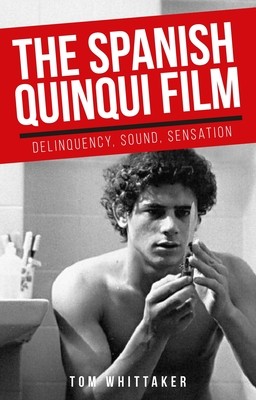
- We will send in 10–14 business days.
- Author: Tom Whittaker
- Publisher: Manchester University Press
- ISBN-10: 1526131773
- ISBN-13: 9781526131775
- Format: 14 x 21.6 x 1.6 cm, hardcover
- Language: English
- SAVE -10% with code: EXTRA
Reviews
Description
This is the first major study in English of cine quinqui, a cycle of popular Spanish films from the late 1970s and early 1980s that starred real-life juvenile delinquents. The book provides a close analysis of key quinqui films by directors such as Eloy de la Iglesia, José Antonio de la Loma and Carlos, as well as the moral panics, public fears and media debates that surrounded their controversial production and reception. In paying particular attention to the soundtrack of the films, the book shows how marginal youth cultures during Spain's transition to democracy were shaped by sound. It will be of interest to scholars and students of Spanish film, history and cultural studies, and those working in sound studies and youth subcultures more broadly.
EXTRA 10 % discount with code: EXTRA
The promotion ends in 20d.16:48:53
The discount code is valid when purchasing from 10 €. Discounts do not stack.
- Author: Tom Whittaker
- Publisher: Manchester University Press
- ISBN-10: 1526131773
- ISBN-13: 9781526131775
- Format: 14 x 21.6 x 1.6 cm, hardcover
- Language: English English
This is the first major study in English of cine quinqui, a cycle of popular Spanish films from the late 1970s and early 1980s that starred real-life juvenile delinquents. The book provides a close analysis of key quinqui films by directors such as Eloy de la Iglesia, José Antonio de la Loma and Carlos, as well as the moral panics, public fears and media debates that surrounded their controversial production and reception. In paying particular attention to the soundtrack of the films, the book shows how marginal youth cultures during Spain's transition to democracy were shaped by sound. It will be of interest to scholars and students of Spanish film, history and cultural studies, and those working in sound studies and youth subcultures more broadly.


Reviews